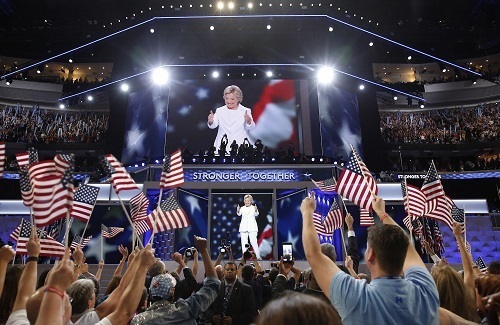What Businesses Can Learn From Presidential Campaigns

Presidential elections are endurance contests and also the ultimate public relations battle. Indeed presidential campaigns sway public opinion in a way that nothing else does. One action by a candidate can brand that candidate forever in the public's mind and nothing will ever change it. Think back to such defining moments as Ronald Reagan's "there you go again"; Michael Dukakis lack of emotion when asked how he would respond if his wife was raped; and George H.W. Bush looking at his watch during a debate with Bill Clinton and Ross Perot.
This election cycle continues to show a very close election. At some point either Mitt Romney or Barack Obama will win the election. After the election we will all be looking back to see what was the defining moment. Was it the debates? The conventions? The economy? The attacks overseas? Regardless of what it was business executives can learn public relations lessons from presidential campaigns.
1. Events that you cannot control are a threat. Have a crisis plan in place to minimize their impact.
This election cycle we have already seen this come true. The Romney Campaign like everyone else was taken short by the events in Libya and Egypt. Compounding this was the candidate's response. People on both sides of the aisle have criticized Romney's attack on the Obama Administration coming on 9/11 when Romney just hours earlier had said the day was not one for attacks and negative campaigning. Romney's campaign which already was doing negative stories now has yet another news cycle. Another recent example was John McCain in 2008. His campaign was leading Obama in the polls until the Lehman collapse. McCain rather than addressing the issue and moving forward suspended his campaign. The result, both the economy and his campaign tanked.
Finally an example of failing to have a plan place that clearly affected an election and nearly cost a candidate the White House was George W. Bush's response to his drunken driving records released by a Maine lawyer the weekend before the election. Even though the Bush campaign was aware these records existed, they had no plan to deal with them if they were released. When the event happened, it reversed their momentum, alienated their base (social voters) who had been told that there were no such records, and made the candidate who was running as a man of integrity after the Clinton/Lewinsky scandal appear dishonest. Without a doubt, the scandal affected the outcome in Pennsylvania, Wisconsin, Michigan, and nearly changed the results in Florida. If you have any kind of concerns regarding where and exactly how to utilize Abraham Lincoln Songs, you could call us at our website.
2. When faced with an intense attack, a forceful response is needed but overreaction may cause more problems.
The Obama Campaign has pushed heavily against Mitt Romney and his tenure at Bain capital. With polls showing the attacks were taking a toll on Romney, he lined up interviews on every network to rebut the charges. Yet he covered no new ground and in some aspects appeared desperate and defensive rather than like a strong leader. Even Republicans acknowledged the Romney move backfired. Contrast this with Ronald Reagan in 1980 who was attacked of being a warmonger and racist by Democrats and President Carter. Reagan looking angry and determined said such charges had no place in political debate and Carter and Democrats owed the American people an apology. This reinforced Reagan's image of being determined and also one unruffled by attacks and turned the tables on Carter.
3. Images matter
We all remember in 2004, John Kerry vacationing and windsurfing. In a campaign where George W. Bush was campaigning as an everyman and was seen despite his policies as likeable, Kerry's image of windsurfing made him seem aloof. In 2000, Al Gore was seen as stiff and unemotional, so to shake things up he gave Tipper a kiss that rocked the convention and television viewers and gave them cause to reconsider their opinion of him (until the debates that is). Finally, in 1980s Americans were looking for strong forceful leadership and the presidency seemed too big for any person with our hostages in Iran, Ronald Reagan gave voters an image that endures of him. At the Nashua debate with George H.W. Bush, Reagan who was sponsoring the primary debate with Bush only, sought to include the other Republican contenders before the debate began the moderator told the sound technician to turn off Reagan's microphone. Reagan jumped up holding the microphone looking strong and angry said, "I am paying for this microphone." The debate, primary, and perhaps election were determined with that image.
